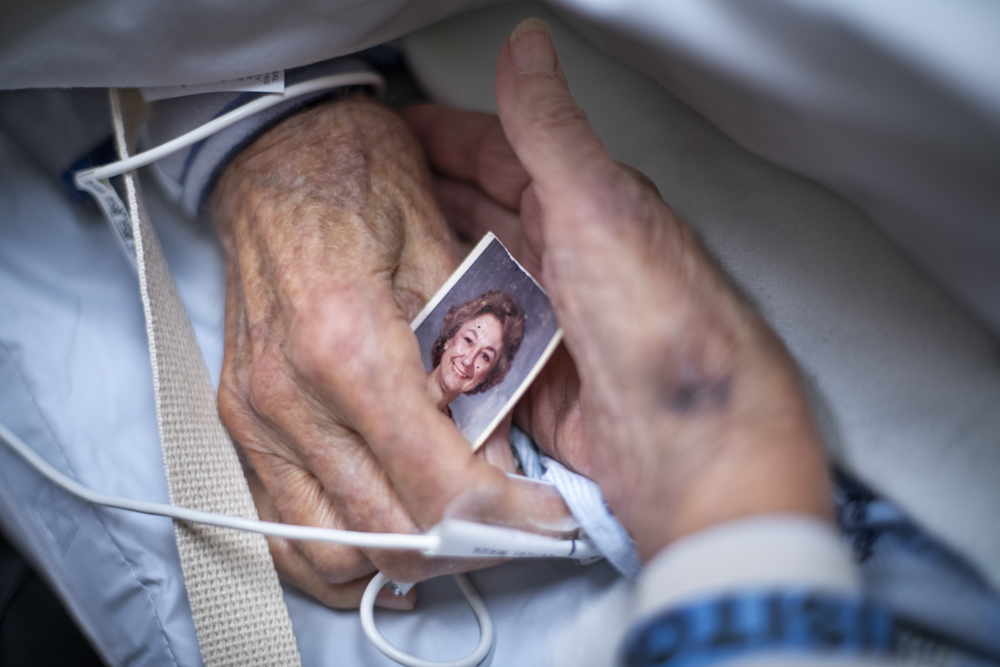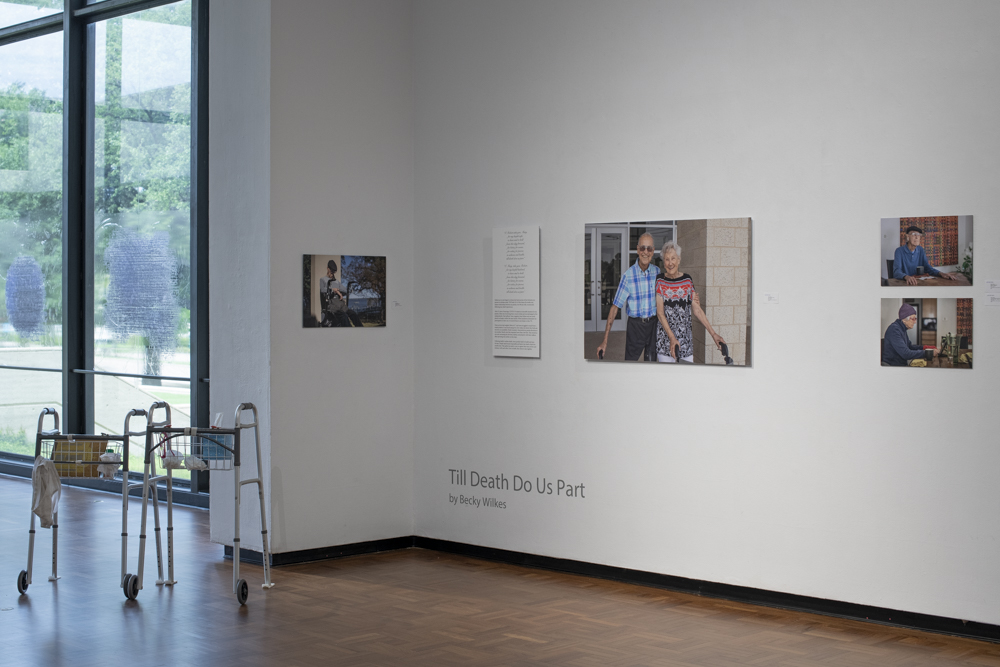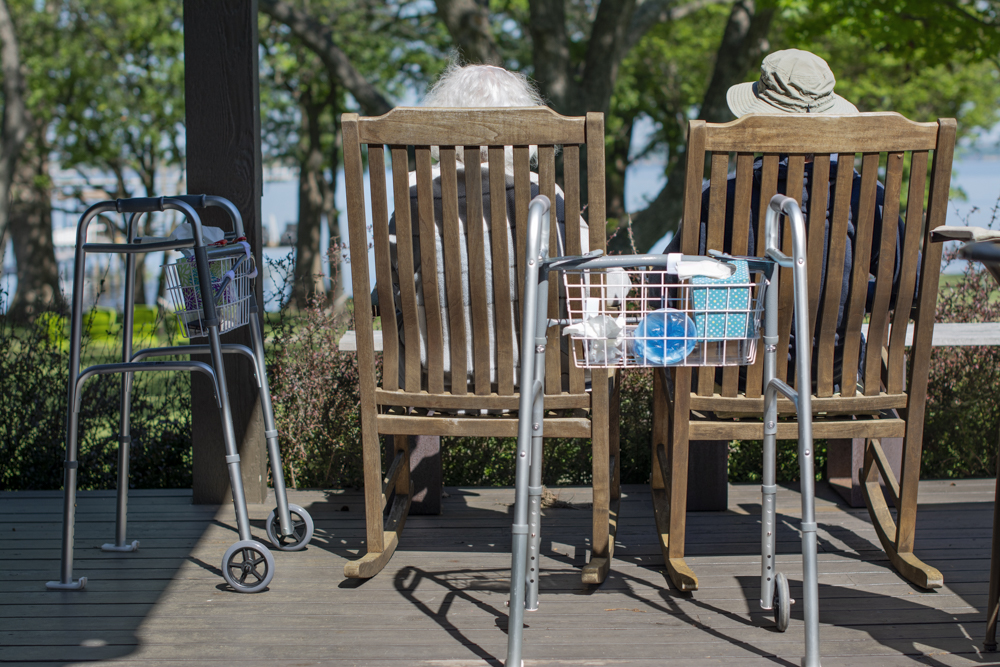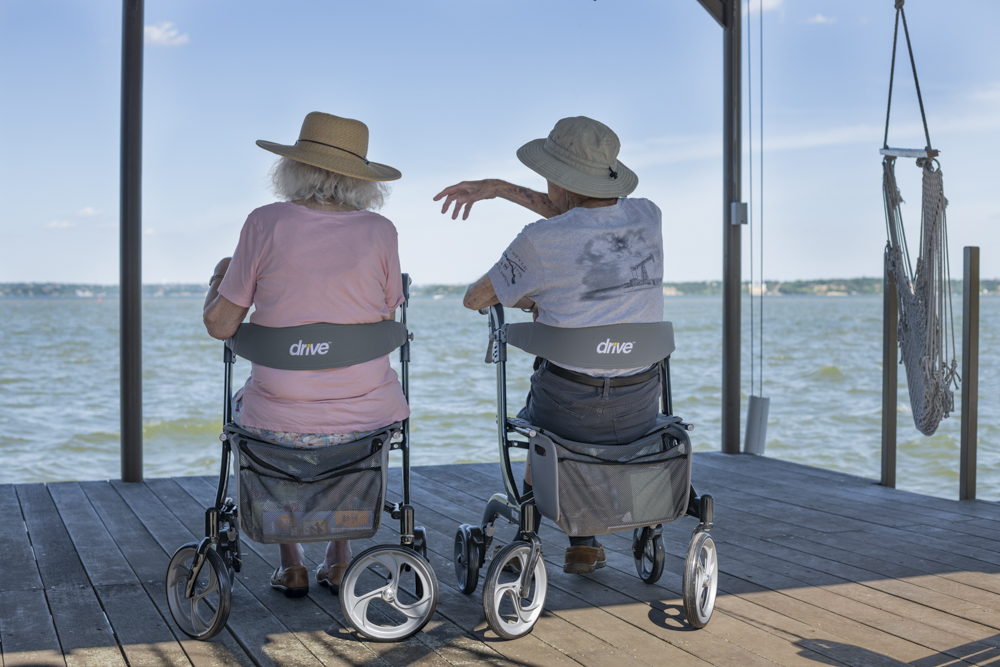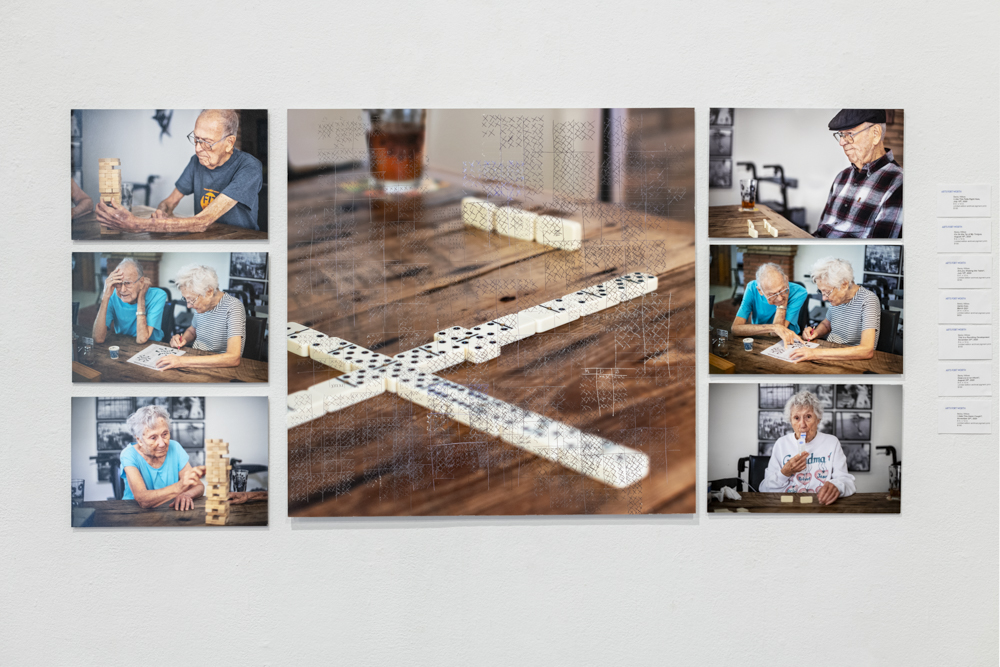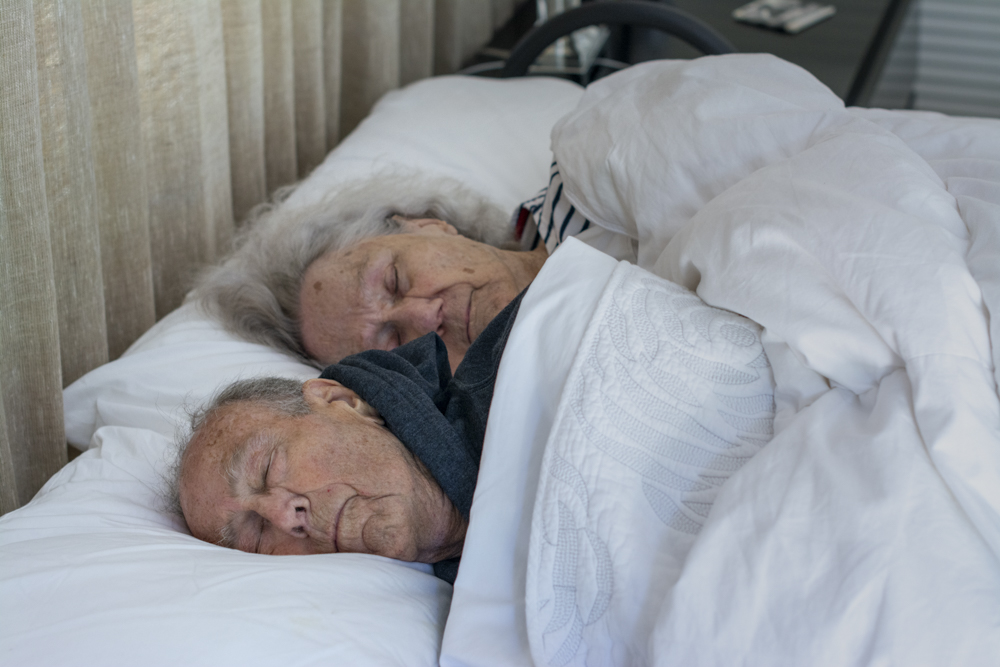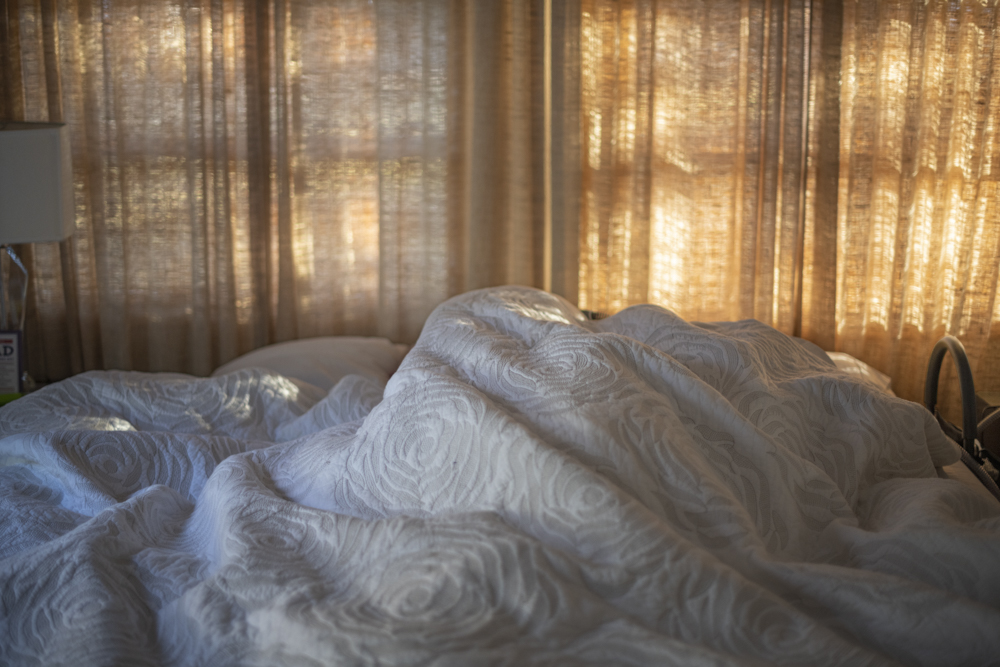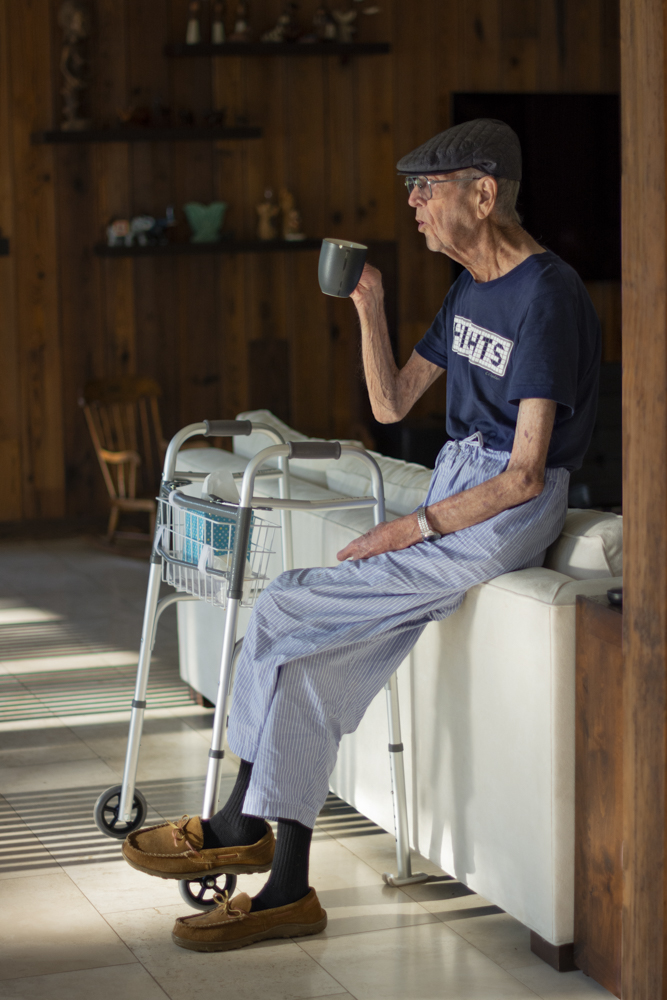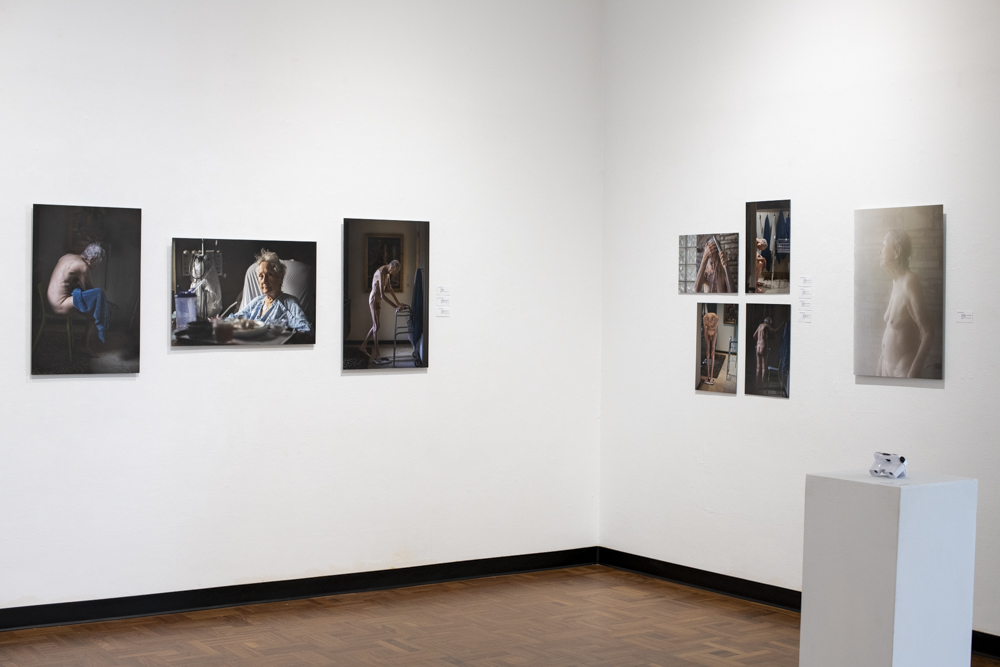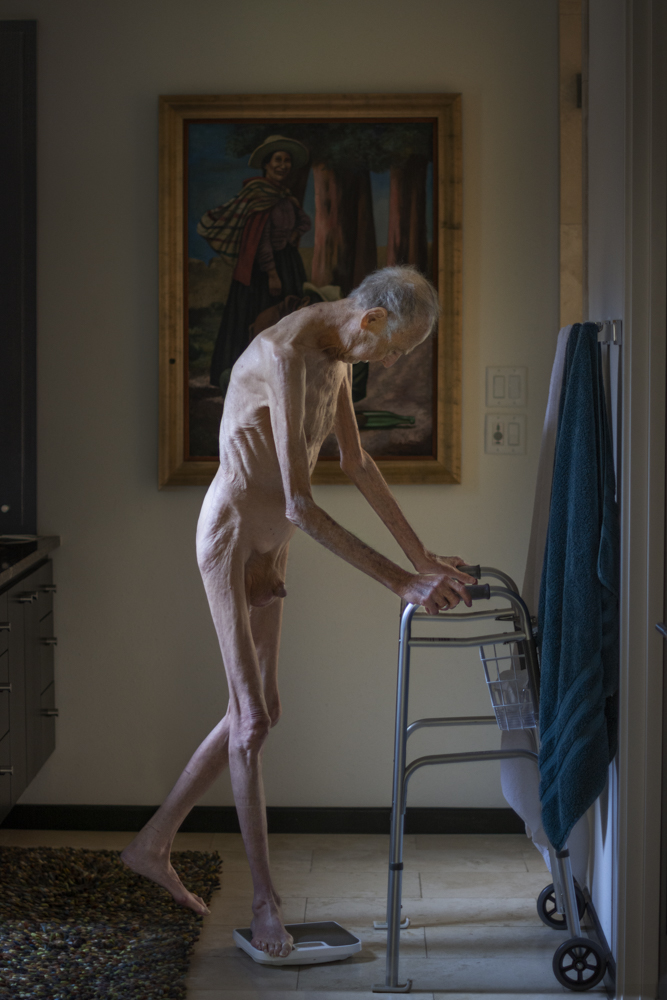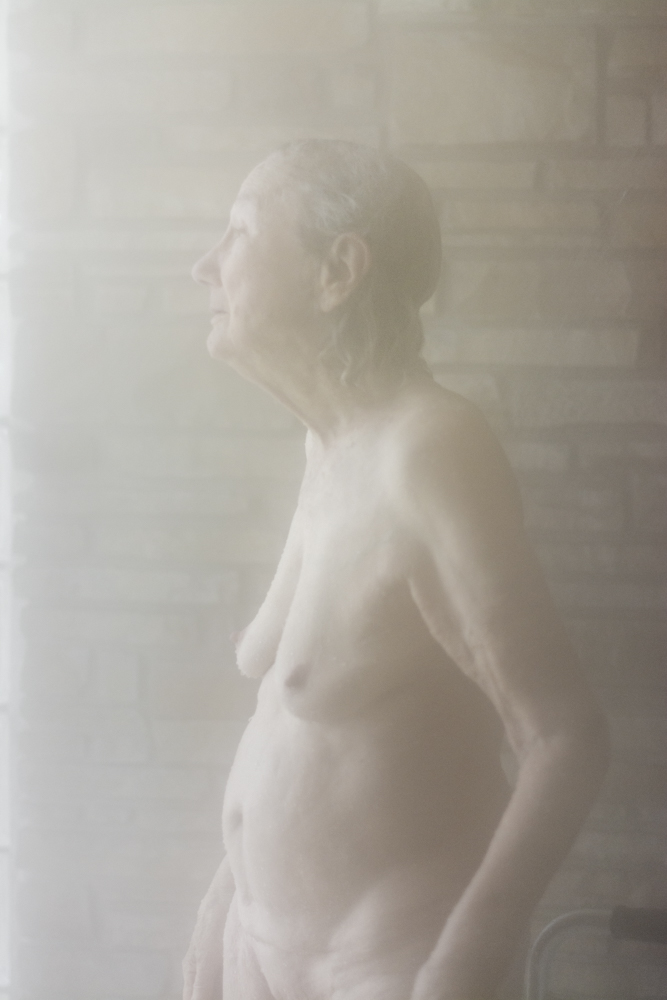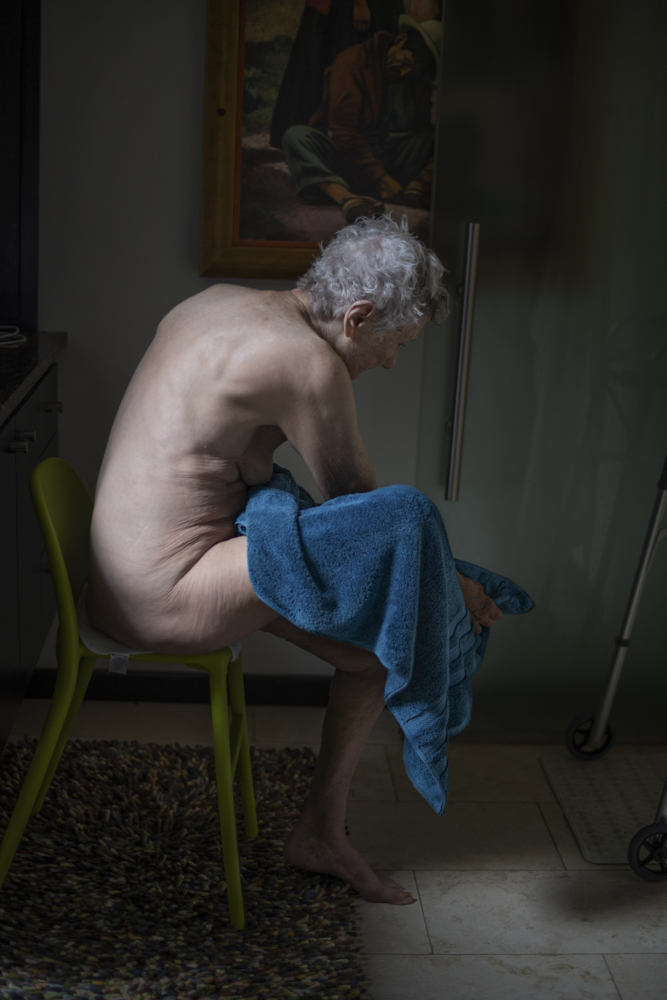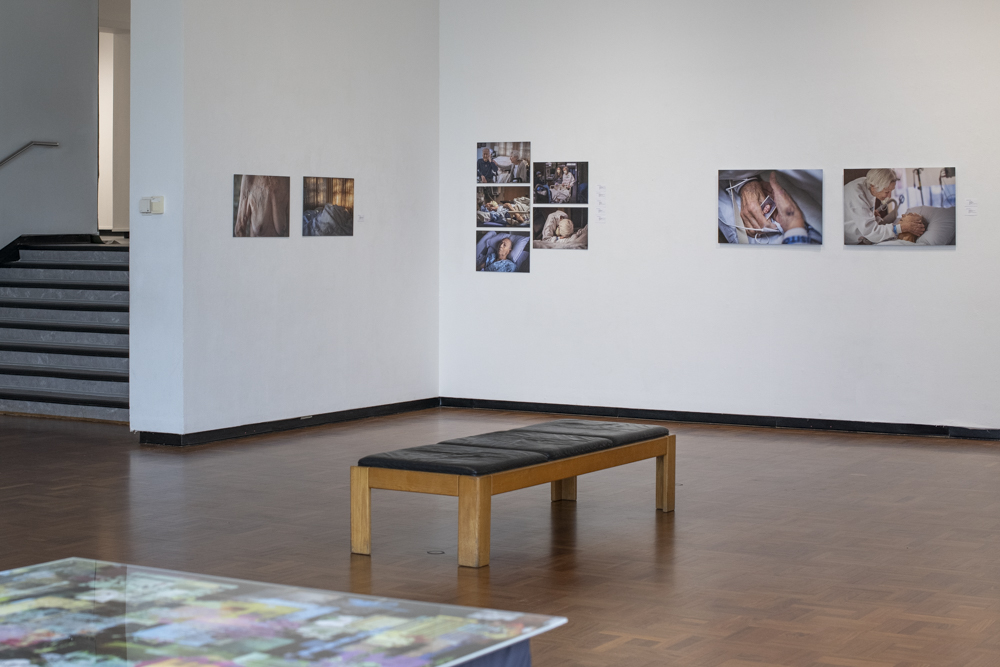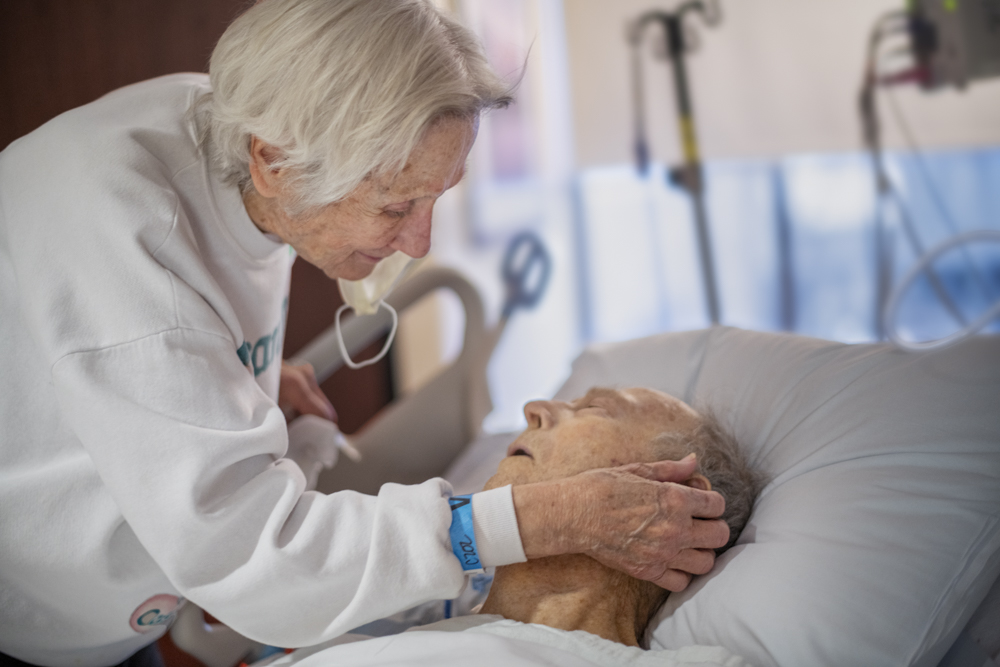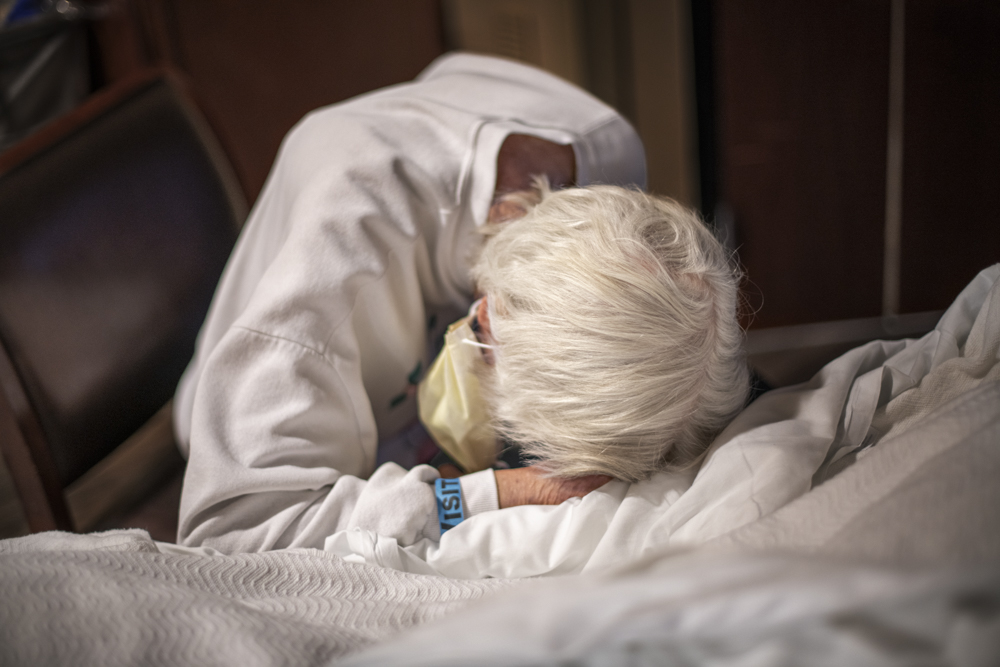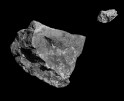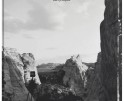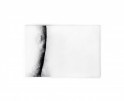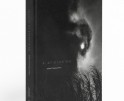Art + Science: The Pandemic: Becky Wilkes
During the COVID-19 pandemic, many of the artists who were able to avoid severe illness or hospitalization were given a unique gift of time to respond to our world in a state of upheaval. Many were inspired to create new projects that responded to the unique time in our world. Others had the opportunity to revisit archives and return to unfinished work. This week features photography projects created during this time, focusing on unique connections that emphasize a calling for empathy, friendship or love.
For many, the pandemic was life changing as we experienced situations beyond our control. Such was the case for artist Becky Wilkes, whose work we recently experienced at Review Santa Fe.
After Wilkes’s parents moved in with her and her husband out of necessity, her life changed in a very unexpected way. Working through anxiety, fear, isolation, and illness, she was able to deepen her relationship with her parents with a strengthened connection of love. Her photographic series Till Death Do Us Part takes the viewer on a journey of this experience. I asked her to explain how the time she spent with her parents during the pandemic has changed her life. Below is her response.
Personally – How to explain the life altering nature of the reversal of roles from child to parent of your parents. I am left with an understanding of my parents’ final year together and my interaction with it, as well as insights into my own and my husband’s future. I am often overwhelmed by their loss, yet at peace and if I might be so bold, triumph, with my decision to bring them to live with us. Daddy was within weeks, if not days of dying. He had no energy to eat or motivation to move about. He lay in his bed in a sodden diaper and was clearly resigned to his fate. And we discovered that Mom, alone in their apartment, was making mistakes with her meds.
When my siblings arrived with my parents, they became my charge. The gravity of that realization cannot be overstated. It’s humbling and frightening. Immediately, I engaged a hospice team and learned how to dispense their meds. Quickly, I would oversee new relationships with medical professionals in our area and alter their meds, meals, and activity gradually improving their health. My parents had brilliantly navigated these challenges throughout their lives, but stroke and debilitating disease rendered them less than capable.
I felt and often heard my parents’ appreciation for what my husband and I were doing for them. Due to my mother’s nature, I recognized this was likely difficult for her to express. One day, she acknowledged me simply and beautifully by telling me, “you’re really good at this.” For the first time in my life, I felt truly seen by my mother, appreciated by her for who I was and what I was able to do.
Because of the pandemic, this time with my parents was more gift than sacrifice. I question whether I would have made this choice had it not been for COVID. This haunts me still today, as I recognize this incredible gift of a year that would not have been. Will I or my husband be so brave to accept help from our children when our time comes?
Artistically – Prior to the pandemic, I considered myself a digital collage artist focusing on improperly discarded trash. With my parents, I quickly pivoted to portraiture, finding myself very uncomfortable and unskilled. I took opportunities to work online with reviewers (that were also pivoting) and received valuable feedback, instruction and validation. With the passing of my parents, I am left between two seemingly disparate art forms, trying to find a way to cohere my parents’ past, my present and future, and all that is left behind. Again, I find myself, uncomfortable with the unknowing.
“Till Death Do Us Part” shares the tender relationship between two 89-year-olds reconnected following near death experiences.
After 67 years of marriage, COVID created an untenable situation for my parents. Mom was recovering from a recent stroke and was discharged to live independently. Daddy suffered from congestive heart failure and was newly placed on hospice within the same facility. When lockdown restrictions confined my mother to her room isolating her from Dad and eliminated our participation in their care, we moved them to our home in Azle, TX.
Although I had been in regular and increasingly significant contact with my parents throughout my life, nothing could have prepared me for the transformation that I was to witness, not only in their health and mental state, but also their relationship with each other and my relationship with them. With their permission, I was given the opportunity to capture moments between them I had never seen. Never before had I witnessed such profound intimacy between them. While the world was isolated from so many of their loved ones, we shared daily laughter, difficulties, sadness and all that life and aging brings us.
Upon arrival, dad weighed 106# at 6’1” and mom struggled to stand from a seated position. It was touch and go for a few weeks, but slowly they both saw recovery as a possibility. Newly reunited, I discovered my parents devotion to one another. Rarely were they separated more than a few feet. They moved as one unit canvassing the driveway, hallway, and dock with their walkers, often spooning one another as they slept.
I witnessed dad at his essence. He sought the sunshine, and was observant to the wonders of his world. He was immensely at peace being in mom’s presence. Mom was more complicated. She struggled to accept the confines of Covid and the inevitability of their future. She often shared that she feared being a burden and dreamed of returning to their former lifestyle.
Following daddy’s sudden death, mom quickly faded in health and mental state. Simple tasks became impossible and lead to her death a brief two months later. They gifted me nearly a year to capture their story of love, vulnerability, and intimacy with each other.
In our culture, aging parents typically move from living independent lives to what could become a series of transitions through assisted living, skilled nursing and potentially hospice care. It is increasingly rare that families decide to bring their parents into their homes. Only because of the limitations imposed due to COVID, our choice was laid bare; either face the likelihood my dad would die alone, separated from mom or provide care for both of them in my home. I made the choice to do more than to accept the restrictions that we were dealt.
A few side notes: I derived the title for this project early in its infancy. Only with time did I realize that I was a participant, that they would be separating from me as well. I am also not present in any of the photographs. Wielding the camera, became a means of separation from the moment. I am intensely saddened by this idea that I have no photographs of me with my parents in their final year.
The titles from the series “Till Death Do Us Part” were words shared by mom or dad.
Becky Wilkes (American, b. 1956 ) lives with her husband of 47 years on Eagle Mountain Lake in Azle, TX. Educated as a Chemical Engineer at Texas A&M, she chose to spend much of her life as a stay-at-home mother of four children who have now blessed her with a multitude of grandchildren. Thus began her study of chaos and order which permeates much of her work. Empty nested, Ms. Wilkes studied photography at the local community college and credits their faculty for instilling a passion for making art.
Prior to being interrupted by the pandemic, her project, Ditched, which examines thousands of items of trash collected from the lakefront, was enjoying success in several solo shows, most notably in Lubbock, TX, Portland, OR and the Dallas, Fort Worth area. Ditched was exhibited in the 2021 Lishui Photography Festival, in BETA developments in photography number 32 and was recognized in Photolucida’s 2019 Critical Mass Top 50. Ms. Wilkes loves to speak to groups about her project and the impact and variety of trash found “in the Ditch”. Newer work from the series draws whimsy with these “trashy” photos to re-envision a world without trash, properly discarded or not.
When the Covid began, she felt compelled to bring her declining parents to live with her and her husband, pivoting her to portraiture of the fated couple. Twice recognized as Photolucida’s Critical Mass Top 50, “Till Death Do Us Part” bares witness to the struggles of mortality, aging, and grief. Recently exhibited in Fort Worth and curated by J. Sybylla Smith, the multimedia exhibition illuminated the intimacy, love and vulnerability shared between Ms. Wilkes and her parents.
Posts on Lenscratch may not be reproduced without the permission of the Lenscratch staff and the photographer.
Recommended
-
Earth Week: Hugh Kretschmer: Plastic “Waves”April 24th, 2024
-
Earth Week: Richard Lloyd Lewis: Abiogenesis, My Home, Our HomeApril 23rd, 2024
-
From Here to the Horizon: Photographs in Honor of Barry LopezApril 3rd, 2024
-
European Week: Kacper KowalskiMarch 4th, 2024
-
Debbie Fleming Caffery: In Light of EverythingFebruary 11th, 2024

